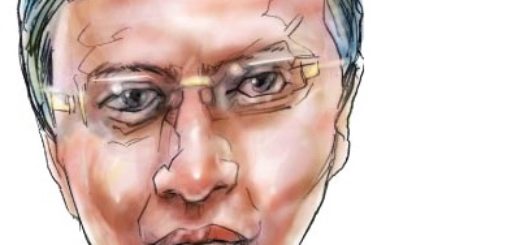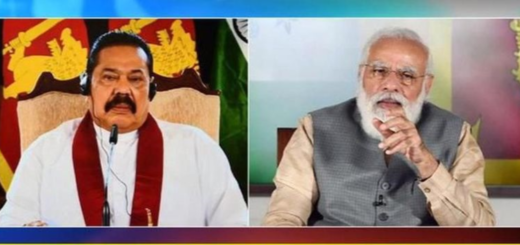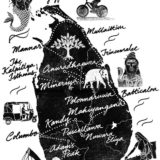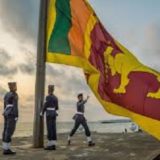Mahavamsa and Cardinal Ranjith debunk Jehan Perera’s bogus theories
The role of Buddhism with Sri Lankan characteristics (i.e., Sinhala-Buddhism) has been demonised in the post-1956 phase by the (1) pro-separatist lobby, (2) its allies in the NGOs and (3) left-wing academics to such an extent that it is now touted as the key factor that is obstructing democracy, liberalism and human rights of minorities. In the pronouncements of these agents Sinhala-Buddhism is invariably projected as an evil instrument used by the Sinhala-Buddhists (referred to as the majority” subversively) to bludgeon the minorities (i.e., the Tamils mainly). Demonising Sinhala-Buddhists is fashionable even among some dolled-up old girls of Vishaka Vidyalaya who were miffed because they were told not to wear short skirts. One of the leading Vishakiyan critics of Sinhala-Buddhism was pulled up for exposing too much of Thai-land” as she got off her father’s posh jeep!
In fairness to some of the critics, it must be conceded that like all institutionalized religions Buddhism too acquired considerable amount of unnecessary accretions as it meshed with the lay society. Serving the spiritual and the existential needs of the laity led the Sangha to interact closely with the secular world. The increasing roles of the Sangha in lay society lifted it incrementally into the highest levels of the feudal hierarchy which, in turn, led to the politicisation of religion. In time the state, the Sangha and the people merged into a consolidated and inseparable force that held the nation together. Despite the Sinhala-Buddhist state being a feudal and authoritarian product of a hydraulic society common to the Asiatic mode of production, the king / state aspired to fulfil the Asokan ideal”, as described by Michael Roberts. In the Buddhist ideal the state was established for the good of the people. In fact, before he got converted to S. J. V. Chelvanayakam’s (his father-in-law) separatist agenda demonising the Sinhala south, Prof. A. J. Wilson in his thesis wrote that democracy took root because of Buddhist ideals which emphasised tolerance and accepted diversity as a primary norm.
Buddhism moved away from pristine, cave-dwelling asceticism into the mainstream society as a civilising force. The laity too became overly depended on the services of the Sangha, particularly in obtaining spiritual services which helped them to cope with the diurnal demands and pressures of life. Consequently, the Sangha acquired a power equivalent to that of revered guardianship over the lives of the populace struggling to face not only tumultuous political turmoil but also personal internal and external tensions. The symbiotic relationship developed into an immoveable force vested in the hand of the Sangha — a power which not even traditional kings dared to challenge. It prevailed as a formidable spiritual, moral and political force, all combined into one. It informed and influenced practically every aspect of what the Mahavamsa called the Sihalas”. It is the overarching power of this force that has come under fire from anti-Sinhala-Buddhist sources seeking to overthrow the entrenched traditional institutions and ideals to enthrone the forces of separatism disguised as federalism, pluralism, diversity and democracy.
Dismantling the democratically elected state has been promoted under various theories. Jehan Perera, the head of the foreign-funded National Peace Council, is one of these theorists. Nationally and internationally he touts the trumped-up accusation that Sri Lanka is run by a majoritarian state” which, by definition, is a mathematical monolith that denies the minority their rightful place. He goes along with the Tamil separatist lobby which claims that the Sinhala-Buddhist state” (he calls it the state of the majority) has denied pluralism, diversity and liberalism. In the name of pluralism, diversity and liberalism he is holding seminars (only for selected people who toes his line) to create plural states, diverse centers of power and liberalizing the powers of the centre until the minority becomes a majority. This is the underlying meaning of these terms he uses in demonising the Sinhala-Buddhist state”. In fact, he is pretty mad that despite the likes of him in NGOs helping to create their Yahapalanaya” the ministers are rushing to assure the public that they will not touch Article 9 which guarantees Buddhism the foremost place in the Constitution.
This is the gist of Jehan Perera’s latest preaching (The Island, Pluralist ethos is more relevant to national identity — 12/2/2019) which he is regurgitated as if he is propounding a profound political revelation. He spearheads the denigration of the democratically elected state of the south in triplicate (one copy to his funding masters in the West, one copy to the Tamil separatists and one copy to manufacture consensus among his local hurrah-boys and girls) accusing it of majoritarianism”, meaning that the minorities have been denied their fair share of the national cake. Perera and his cohorts in politicised NGOs are in the lucrative business of manufacturing consensus for separatism disguised under various liberal theories of the West.
In historical times, the first waves of attacks came from the invading alien forces – the Dravidians, Portuguese, Dutch and the British. Now the attacks are coming from the locals financed and directed by the aliens. They are trying to make out that Buddhism, as a living force in shaping overall ethos of the nation, has not been a force for the good, particularly to the minorities. This is not surprising because the contemporary anti-national local agents receive funds from their Western God Fathers to undermine the traditional roots of the nation which are based, essentially, on Sinhala-Buddhism.
The Buddhist ideals that influenced the building of a new civilisation with a new culture and a new language – the three great pillars of Sinhala-Buddhist history — were delineated clearly in the Mahavamsa, the Great Chronicle written by historian Ven. Mahanama in the 5th century. He said that the mission of the king/state (in this instance it was Dutugemunu) was ’’ to make our island a fit dwelling-place for men”. (MV – 1:44). Though this statement is short and sweet it summarizes the overall purpose and meaning of the state. In other @|









